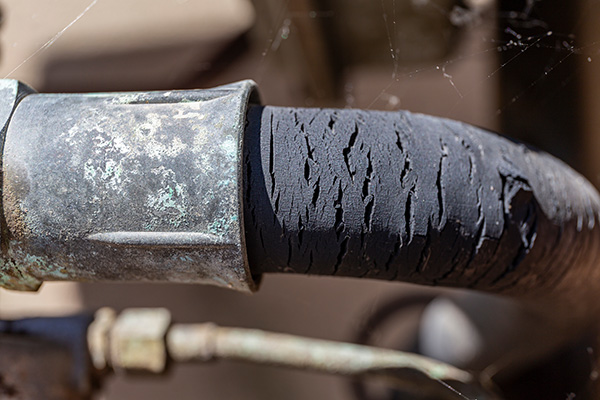
When it comes to car maintenance, we often focus on the big-ticket items like oil changes, tire rotations, or brake inspections. But sometimes, the smaller, overlooked components can cause the most significant damage if not maintained properly. Such components are the various hoses. Hoses in your car play a crucial role in keeping everything running and when they crack, the consequences can be severe. You might be wondering, “Can a cracked hose really cause engine damage?” The short answer is yes. But let’s look deeper into why this is the case and what you can do to prevent it.
The Role of Hoses in Your Vehicle
Hoses might not seem like much, but they are essential for the proper functioning of your vehicle. They are responsible for transporting fluids, such as coolant, fuel, and hydraulic fluid, to various parts of the engine and other critical systems. Without these fluids, your car’s engine would overheat, seize up, or fail entirely.
There are several types of hoses in your car, each serving a different purpose. The most common include radiator hoses, fuel hoses, and vacuum hoses. Radiator hoses, for example, carry coolant between the engine and the radiator to regulate engine temperature. Fuel hoses ensure that gasoline flows from the fuel tank to the engine, while vacuum hoses help control the air and fuel mixture in the engine. When any of these hoses crack, the fluid they carry can leak out, leading to a cascade of problems.
The Risks of Driving with a Cracked Hose
So, what exactly happens when a hose in your car cracks? The answer depends on which hose is compromised, but the risks are generally quite serious.
Engine Overheating
If a radiator hose cracks, coolant can leak out, leading to an inadequate supply for the engine. Without enough coolant, the engine temperature can rise rapidly, causing it to overheat. Overheating can lead to warped engine components, blown head gaskets, and even complete engine failure if not addressed promptly.
Fuel Leaks
A cracked fuel hose can result in a fuel leak, which is both dangerous and wasteful. Not only will you experience reduced fuel efficiency, but a fuel leak also poses a fire hazard. Gasoline is highly flammable, and even a small spark can ignite a fire if it comes into contact with leaked fuel.
Loss of Power
Cracked vacuum hoses can lead to a loss of engine power. These hoses are crucial for maintaining the proper air-to-fuel ratio in the engine. If a vacuum hose is cracked, it can cause a vacuum leak, leading to rough idling, engine misfires, and a decrease in overall performance.
Transmission Issues
Some hoses carry hydraulic fluid to the transmission. If one of these hoses cracks, it can cause a fluid leak, leading to transmission slippage, overheating, and transmission failure.
Signs Your Hose Might Be Cracked
Detecting a cracked hose before it causes significant damage is crucial. Here are some signs to watch out for:
- Fluid Leaks: If you notice puddles of coolant, fuel, or other fluids under your car, it could indicate a cracked hose.
- Low Fluid Levels: Regularly checking your car’s fluid levels can help you catch a problem before it gets worse. If you’re consistently low on coolant or fuel, a cracked hose could be the culprit.
- Engine Overheating: If your engine temperature gauge is frequently in the red, or if you see steam coming from under the hood, a cracked radiator hose could be to blame.
- Strange Smells: A fuel leak might be accompanied by a strong gasoline smell. Similarly, a coolant leak might produce a sweet, syrupy odor.
Preventing Hose-Related Engine Damage
Prevention is always better than cure, and this is particularly true when it comes to your car’s hoses. Regular maintenance and inspections can help you avoid the costly repairs associated with cracked hoses.
Regular Inspections
Make it a habit to inspect your hoses regularly. Look for any signs of wear, such as cracks, bulges, or leaks. If you’re unsure what to look for, a professional mechanic can perform a thorough inspection during routine maintenance.
Replace Hoses as Needed
Hoses don’t last forever. Depending on your vehicle and driving conditions, hoses may need to be replaced every four to five years. Don’t wait for a hose to fail before replacing it—proactively replacing aging hoses can save you from major engine damage down the road.
Use Quality Parts
When replacing hoses, always opt for high-quality parts. Cheaper hoses might save you money upfront, but they’re more likely to crack and cause problems in the long run.
Keep your engine safe from hose-related damage. Head over to Complete Automotive Repair Specialists for routine maintenance and hose inspections. Let us help you avoid expensive repairs and keep your car in peak condition. Contact us to set up your service!